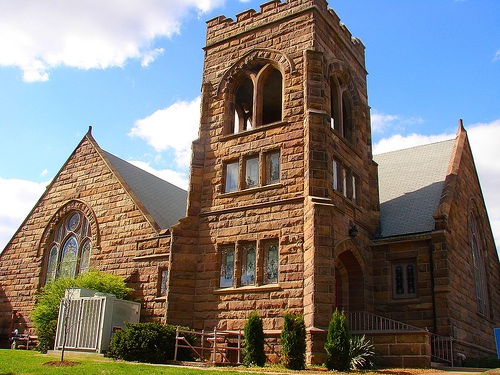
Sundays, my parents would pin
their names to dress clothes.
The labelmaker’s impressions formed
letters unevenly, and at the end
back into the cork. To avoid the word
church, everyone agreed to call
it a fellowship. For us, Sundays
were crafts—bunnies, pumpkins,
cornucopias—construction paper
and glitter, Elmer’s glue sticking
everything to everything else. Blunt metal
scissors tore paper. Clothespins hung
each week’s art from a piece of twine.
The kids descended to the rooms below,
where on other days AA meetings
and singles’ teas were held.
Once we found a tiny liquor bottle
stashed behind the john, alchemy
of hope and failure that made
almost nothing the teacher said
real enough. There were no curtains,
so the legs of passers-by cut
into and out of the scene. We knew
when the singing began there were six
minutes left before parents’ legs
showed through the steps’ cement lattice.
We must have hung our creations
in the cinder-block halls, tape
anchoring corners and air drying
to curls the ragged pasted flowers,
even while above us committees
were meeting to excise references
to Jesus from hymnal and verse.
We could have told them
what to call things, if they’d asked—
love and honor and faith
all led us to the same names.
As we stretched our lengthening bones
against twin sheets, books beckoned
to be read. All the trees waited to be
shimmied up under the rustling leaves.
Margot Schilpp was born in Stuttgart, Germany in 1962. She is the author of three volumes of poetry: Civil Twilight , Laws of My Nature, and The World’s Last Night.
Photo by Flickr Creative Commons user Juan Pablo Gonzalez




